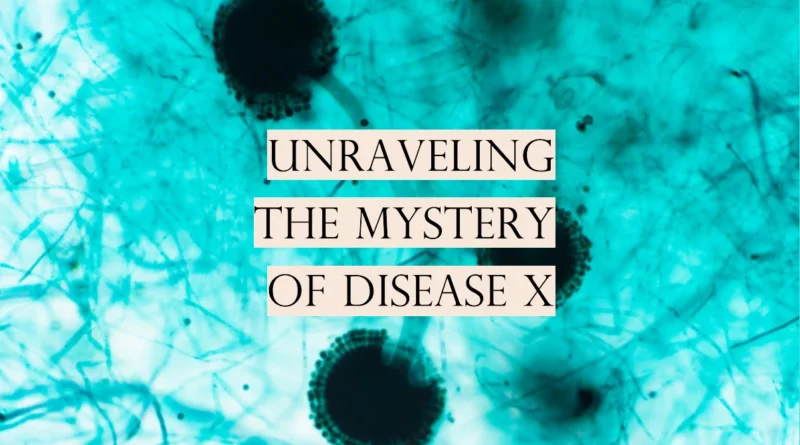Disease X: Unraveling the Mystery of a Potential Global Threat
In the ever-evolving landscape of infectious diseases, the term “Disease X” has emerged as a symbol of uncertainty and preparedness. Coined by the World Health Organization (WHO), Disease X represents the knowledge that a serious international epidemic could be caused by a pathogen currently unknown to cause human disease. In this blog post, we will delve into the intriguing concept of Disease X, exploring what it means, why it matters, and the implications for global health.
Understanding Disease X
Disease X is not a specific virus or ailment but rather a conceptual placeholder. It serves as a reminder that the world is vulnerable to emerging infectious diseases that may not yet exist or have not been identified. The WHO introduced Disease X to underscore the unpredictability of pathogens and the need for proactive measures in the face of potential health threats.
Disease X at a Glance
| Term | Definition |
| Disease X | Represents a potential future epidemic from an unknown pathogen. |
| WHO | The World Health Organization, a leading global health authority. |
| Placeholder | A term used to signify a concept without specifying a particular disease. |
The WHO’s Priority Diseases List
To grasp the significance of Disease X, it’s essential to understand its place within the WHO’s broader framework. The WHO maintains a list of “priority diseases,” which includes both known and unknown pathogens that have the potential to cause significant international health crises.
WHO’s Priority Diseases
| Priority Disease | Description |
| COVID-19 | The coronavirus disease that caused the global pandemic. |
| Ebola | A highly contagious and often fatal virus. |
| Lassa Fever | An acute viral hemorrhagic fever. |
| MERS | Middle East Respiratory Syndrome, caused by a coronavirus. |
| Nipah Virus | A zoonotic virus that can lead to severe respiratory and neurological disease. |
| Disease X | Placeholder for an unknown pathogen with pandemic potential. |
The Importance of Disease X
Disease X is not merely a theoretical concept; it has real-world implications for global health and pandemic preparedness. Here’s why Disease X matters:
- Anticipating the Unknown: The emergence of new diseases is a recurring phenomenon in human history. By acknowledging Disease X, health organizations and governments can allocate resources and expertise to respond effectively when a novel pathogen arises.
- Early Detection and Response: Disease X serves as a call to action for the scientific community to develop surveillance systems capable of detecting unusual diseases promptly. Early detection allows for a more effective response and containment.
- Research and Vaccine Development: Disease X underscores the need for ongoing research into potential pathogens. This research can inform the development of vaccines and treatments to counteract emerging diseases swiftly.
Why Disease X Matters
| Importance | Description |
| Anticipating | Preparing for the emergence of unknown diseases. |
| Early Detection | Prompt identification of novel pathogens. |
| Research | Conducting research for vaccine and treatment development. |
Disease X in the Context of Recent Health Crises
To put Disease X into perspective, let’s examine its relevance in the context of recent health crises.
COVID-19
COVID-19, caused by the novel coronavirus SARS-CoV-2, is a stark example of the need for preparedness. At the onset of the pandemic, the world faced an unfamiliar virus with no preexisting immunity or treatments. Disease X serves as a reminder that such scenarios can occur again.
Emerging Infectious Diseases
Beyond COVID-19, various emerging infectious diseases like Zika, MERS, and Ebola have challenged global health systems. Disease X reminds us that these diseases may not be isolated incidents but part of a broader pattern of emerging pathogens.
Conclusion: The Call for Vigilance
In a world marked by rapid globalization and interconnectedness, the concept of Disease X calls for vigilance and preparedness. While we cannot predict the exact nature of future health threats, we can fortify our defenses through research, early detection, and collaborative efforts among nations and organizations.
Disease X serves as a stark reminder that the world must remain proactive in addressing emerging infectious diseases. By doing so, we can better protect global health and mitigate the impact of potential future pandemics.
As we navigate the uncertain terrain of infectious diseases, one thing remains clear: Disease X may be an enigma, but our commitment to addressing it is unwavering.




